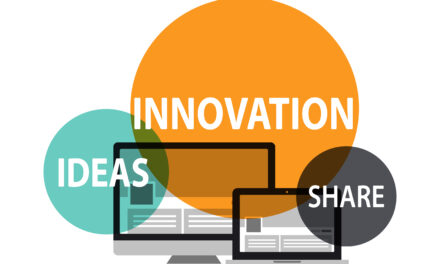Artificial Intelligence (AI) is revolutionizing the healthcare industry, offering unprecedented opportunities to improve patient care, streamline operations, and reduce costs. As healthcare organizations increasingly adopt AI technologies, they encounter significant opportunities and complex challenges. This article explores the impact of AI in healthcare, its business opportunities, challenges, and the future outlook.
Understanding AI in Healthcare
AI encompasses a range of technologies, including machine learning, natural language processing, and robotics, that can mimic human intelligence. In healthcare, AI analyses medical data, enhances diagnostic accuracy, personalises treatment plans, and automates administrative tasks.
Key Opportunities for AI in Healthcare
1. Enhanced Diagnostics
AI can significantly improve diagnostic accuracy by analyzing vast amounts of medical data. Machine learning algorithms can identify patterns and anomalies in imaging data, helping radiologists detect diseases earlier and more accurately.
For example, AI-powered systems like IBM Watson Health analyze medical images, improving the detection of conditions such as cancer and heart disease. This enhances patient outcomes and reduces the burden on healthcare professionals.
2. Personalized Treatment
AI enables personalized treatment plans by analyzing patient data, including genetics, lifestyle, and medical history. By tailoring treatments to individual patients, healthcare providers can improve outcomes and reduce adverse effects.
Pharmaceutical companies like Roche are leveraging AI to develop personalized medications based on genetic information, which will lead to more effective treatments and reduced trial-and-error prescribing.
3. Predictive Analytics
Predictive analytics, powered by AI, allows healthcare providers to anticipate patient needs and intervene before conditions worsen. By analyzing historical data, AI can predict patient outcomes, readmissions, and potential complications.
Hospitals use predictive analytics to identify high-risk patients and implement preventive measures, reducing readmissions and improving patient care.
4. Streamlined Operations
AI can automate administrative tasks, such as appointment scheduling, billing, and patient record management, reducing administrative costs and allowing healthcare providers to focus on patient care.
Healthcare facilities use AI-powered chatbots to handle appointment scheduling and patient inquiries, improving efficiency and patient satisfaction.
5. Drug Discovery and Development
AI accelerates drug discovery by analyzing vast datasets to identify potential drug candidates, predict their efficacy, and optimize clinical trials. This reduces the time and cost associated with bringing new drugs to market.
Companies like DeepMind are using AI to analyze protein structures, revolutionizing drug discovery and development in the pharmaceutical industry.
Challenges of Implementing AI in Healthcare
1. Data Privacy and Security
AI in healthcare involves handling sensitive patient data and raising concerns about privacy and security. Healthcare organizations must implement robust data protection measures to safeguard patient information and comply with regulations.
2. Ethical and Regulatory Issues
AI applications in healthcare raise ethical concerns, such as algorithm bias and the potential for AI to replace human judgment. Regulatory frameworks must be established to ensure the ethical use of AI in healthcare.
3. Integration with Existing Systems
Integrating AI solutions with existing healthcare systems can be challenging due to compatibility issues and the complexity of healthcare IT infrastructures. Organizations must ensure seamless integration to maximize the benefits of AI.
4. High Implementation Costs
The initial investment in AI technologies can be substantial, including software, hardware, and training costs. Healthcare organizations must weigh the potential benefits against the costs and develop a clear implementation strategy.
5. Workforce Displacement
Adopting AI in healthcare may lead to workforce displacement, as tasks traditionally performed by healthcare professionals are automated. Organizations must address workforce concerns through reskilling and upskilling initiatives.
Future Outlook for AI in Healthcare
1. Increased Adoption of AI Technologies
As AI technologies continue to evolve, their adoption in healthcare is expected to increase. Organizations will leverage AI to enhance patient care, streamline operations, and improve decision-making.
2. Greater Focus on Ethical AI
As the use of AI in healthcare grows, there will be an increased focus on ethical considerations, including transparency, accountability, and fairness. Regulatory bodies will play a key role in ensuring the ethical use of AI in healthcare.
3. Advancements in Personalized Medicine
AI will continue to drive advancements in personalized medicine, enabling healthcare providers to deliver more targeted and effective treatments based on individual patient profiles.
4. Integration with IoT and Wearable Devices
Integrating AI with the Internet of Things (IoT) and wearable devices will provide real-time patient data, enabling continuous monitoring and personalized healthcare interventions.
5. Expansion of Telehealth Services
AI will be crucial in expanding telehealth services, which will provide remote patient monitoring, virtual consultations, and personalized treatment recommendations.
Conclusion
AI is transforming the healthcare industry, offering significant business opportunities and challenges. From enhanced diagnostics and personalized treatment to streamlined operations and drug discovery, AI has the potential to revolutionize patient care. However, healthcare organizations must address challenges related to data privacy, ethical considerations, and integration to realize the full benefits of AI.
We invite you to share your thoughts and experiences on the impact of AI in healthcare. What opportunities and challenges have you encountered? What future trends do you foresee? Join the conversation in the comments below.
References
- IBM Watson Health: AI in Healthcare
https://www.ibm.com/watson-health
- Roche’s Use of AI for Personalized Medicine
https://www.roche.com/research_and_development/what_we_are_working_on/ai-in-healthcare.htm
- DeepMind and Drug Discovery
https://deepmind.com/research/highlighted-research/alphafold
- AI in Healthcare: Opportunities and Challenges
https://www.forbes.com/sites/bernardmarr/2020/07/20/the-key-challenges-and-opportunities-of-ai-in-healthcare/
- Predictive Analytics in Healthcare
https://www.healthcatalyst.com/insights/predictive-analytics-in-healthcare
- AI and Ethical Considerations in Healthcare
https://www.brookings.edu/research/ai-and-healthcare-challenges/
- Telehealth and AI Integration
https://www.mckinsey.com/industries/healthcare-systems-and-services/our-insights/the-future-of-healthcare
Disclaimer
The information provided in this article is for general informational purposes only. All information in the article is provided in good faith; however, we make no representation or warranty of any kind, express or implied, regarding the accuracy, adequacy, validity, reliability, availability, or completeness of any information in the article. Readers are encouraged to seek professional advice before making any business decisions based on the information provided in this article.
4o







